Gwadar: Song of the Sea Wind
By: Salman Rashid
-
Rs 1,275.00
- Rs 1,500.00
- 15%
You save Rs 225.00.
Due to constant currency fluctuation, prices are subject to change with or without notice.
From Director General, Gwadar Development Authority, Shahzeb Khan Kakar
It is with great pleasure that we present Gwadar: Song of the Sea Wind for the general public and the tourist. For centuries Gwadar remained a lonely outpost where ocean going vessels called from faraway lands. It was only with the beginning of the current millennium that this beautiful but neglected little fishing village came into notice.
With the commencement of the various projects under the China Pakistan Economic Corridor partnership, Gwadar is now poised to vie with places like Dubai and Singapore. While the city undergoes feverish building activity and is set for a complete makeover, we envisage an influx of visitors. Indeed, this is no erroneous belief. Over the past several years since Gwadar became easily accessible by road from Karachi, the city has seen a regular inflow of tourists. The only change now is that it waits for foreign visitors to start visiting.
After the work done by British geographers and explorers, most of it in the nineteenth century, a study of the Balochistan seaboard in general and of Gwadar in particular ended. In the past more than a century, there has been no work on this area. With Gwadar poised on the threshold of world attention, this book is very timely. It will make the perfect travel companion for anyone travelling overland from Karachi to this city of great promise.
From Chief Minister Balochistan, Jam Kamal Khan Alyani,
Some months ago, Shahzeb Khan Kakar, the Director General of Gwadar Development Authority, mentioned that he had engaged a writer to prepare an introduction to Gwadar and its promise of being a city of the twenty-first century. In the absence of any work having been done on this area, I had imagined a very long-drawn project. However, I am very glad to see this current presentation.
Gwadar: Song of the Sea Wind very beautifully encapsulates the port city as it grows and speedily heads into its rightful place among the great ports of the modern world. What I find of particular interest is that this book tells a story of not just Gwadar, but the entire seaboard from Sonmiani in the east all the way to our last outpost of Jivani.
The device of following an admiral of the fleet of Alexander has been very cleverly used to tell the story of Makrani history. The most pleasing aspect of the book is that it uncovers historical reality with remarkable mastery. We learn of the Greeks in Pasni and Gwadar and of the passage of Marco Polo. We also discover how the Portuguese laid waste the reportedly rich cities of Gwadar and Pasni in their struggles against the Turks. It clearly brings out the resilience of our people of Makran who rebounded after every setback to make this mysterious country what it is today.
This book is now the essential travel companion of every tourist heading to Gwadar. I felicitate Shahzeb Kakar for this splendid effort.
From Director General, Gwadar Development Authority, Shahzeb Khan Kakar
It is with great pleasure that we present Gwadar: Song of the Sea Wind for the general public and the tourist. For centuries Gwadar remained a lonely outpost where ocean going vessels called from faraway lands. It was only with the beginning of the current millennium that this beautiful but neglected little fishing village came into notice.
With the commencement of the various projects under the China Pakistan Economic Corridor partnership, Gwadar is now poised to vie with places like Dubai and Singapore. While the city undergoes feverish building activity and is set for a complete makeover, we envisage an influx of visitors. Indeed, this is no erroneous belief. Over the past several years since Gwadar became easily accessible by road from Karachi, the city has seen a regular inflow of tourists. The only change now is that it waits for foreign visitors to start visiting.
After the work done by British geographers and explorers, most of it in the nineteenth century, a study of the Balochistan seaboard in general and of Gwadar in particular ended. In the past more than a century, there has been no work on this area. With Gwadar poised on the threshold of world attention, this book is very timely. It will make the perfect travel companion for anyone travelling overland from Karachi to this city of great promise.
From Chief Minister Balochistan, Jam Kamal Khan Alyani,
Some months ago, Shahzeb Khan Kakar, the Director General of Gwadar Development Authority, mentioned that he had engaged a writer to prepare an introduction to Gwadar and its promise of being a city of the twenty-first century. In the absence of any work having been done on this area, I had imagined a very long-drawn project. However, I am very glad to see this current presentation.
Gwadar: Song of the Sea Wind very beautifully encapsulates the port city as it grows and speedily heads into its rightful place among the great ports of the modern world. What I find of particular interest is that this book tells a story of not just Gwadar, but the entire seaboard from Sonmiani in the east all the way to our last outpost of Jivani.
The device of following an admiral of the fleet of Alexander has been very cleverly used to tell the story of Makrani history. The most pleasing aspect of the book is that it uncovers historical reality with remarkable mastery. We learn of the Greeks in Pasni and Gwadar and of the passage of Marco Polo. We also discover how the Portuguese laid waste the reportedly rich cities of Gwadar and Pasni in their struggles against the Turks. It clearly brings out the resilience of our people of Makran who rebounded after every setback to make this mysterious country what it is today.
This book is now the essential travel companion of every tourist heading to Gwadar. I felicitate Shahzeb Kakar for this splendid effort.
Zubin Mehta: A Musical Journey (An Authorized Biography)
By: VOID - Bakhtiar K. Dadabhoy
Rs 892.50 Rs 1,050.00 Ex Tax :Rs 892.50
Taming Rivers - Recollections of a Civil Engineer During the British Raj
By: Khan Bahadur Abdur Rahman Khan
Rs 1,111.50 Rs 1,235.00 Ex Tax :Rs 1,111.50
The Origins of Political Order From Prehuman Times to the French RevolutioN
By: Francis Fukuyama
Rs 4,045.50 Rs 4,495.00 Ex Tax :Rs 4,045.50
Manning Up: How the Rise of Women Has Turned Men into Boys
By: Kay Hymowitz
Rs 845.75 Rs 995.00 Ex Tax :Rs 845.75
The Obama Syndrome: Surrender At Home War Abroad
By: Tariq Ali
Rs 1,100.75 Rs 1,295.00 Ex Tax :Rs 1,100.75
The Quest For Meaning: Developing A Philosophy Of Pluralism
By: Tariq Ramadan
Rs 1,185.75 Rs 1,395.00 Ex Tax :Rs 1,185.75
The Pakistan US Conundrum Jihadists The Military And The People The Struggle For Control
By: Yunas Samad
Rs 1,185.75 Rs 1,395.00 Ex Tax :Rs 1,185.75
An Enemy We Created: The Myth Of The Taliban Al Qaeda Merger In Afghanistan 19702010
By: Alex Strick van Linschoten
Rs 4,197.50 Rs 8,395.00 Ex Tax :Rs 4,197.50
WikiLeaks: Inside Julian Assanges War on Secrecy
By: David Leigh & Luke Harding
Rs 637.50 Rs 850.00 Ex Tax :Rs 637.50
Taming Rivers - Recollections of a Civil Engineer During the British Raj
By: Khan Bahadur Abdur Rahman Khan
Rs 1,111.50 Rs 1,235.00 Ex Tax :Rs 1,111.50
Zubin Mehta: A Musical Journey (An Authorized Biography)
By: VOID - Bakhtiar K. Dadabhoy
Rs 892.50 Rs 1,050.00 Ex Tax :Rs 892.50
Taming Rivers - Recollections of a Civil Engineer During the British Raj
By: Khan Bahadur Abdur Rahman Khan
Rs 1,111.50 Rs 1,235.00 Ex Tax :Rs 1,111.50












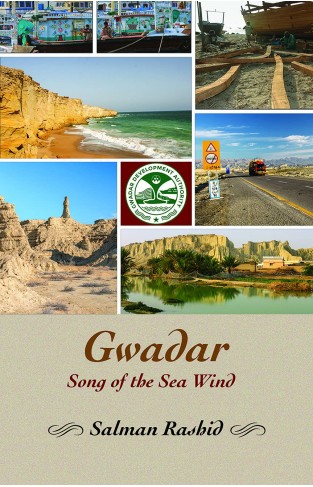

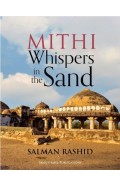
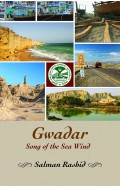
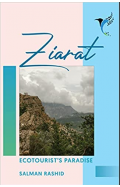

-120x187.jpg?q6)






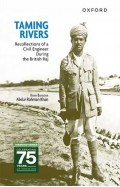

-120x187.jpg?q6)



-120x187.jpg?q6)








